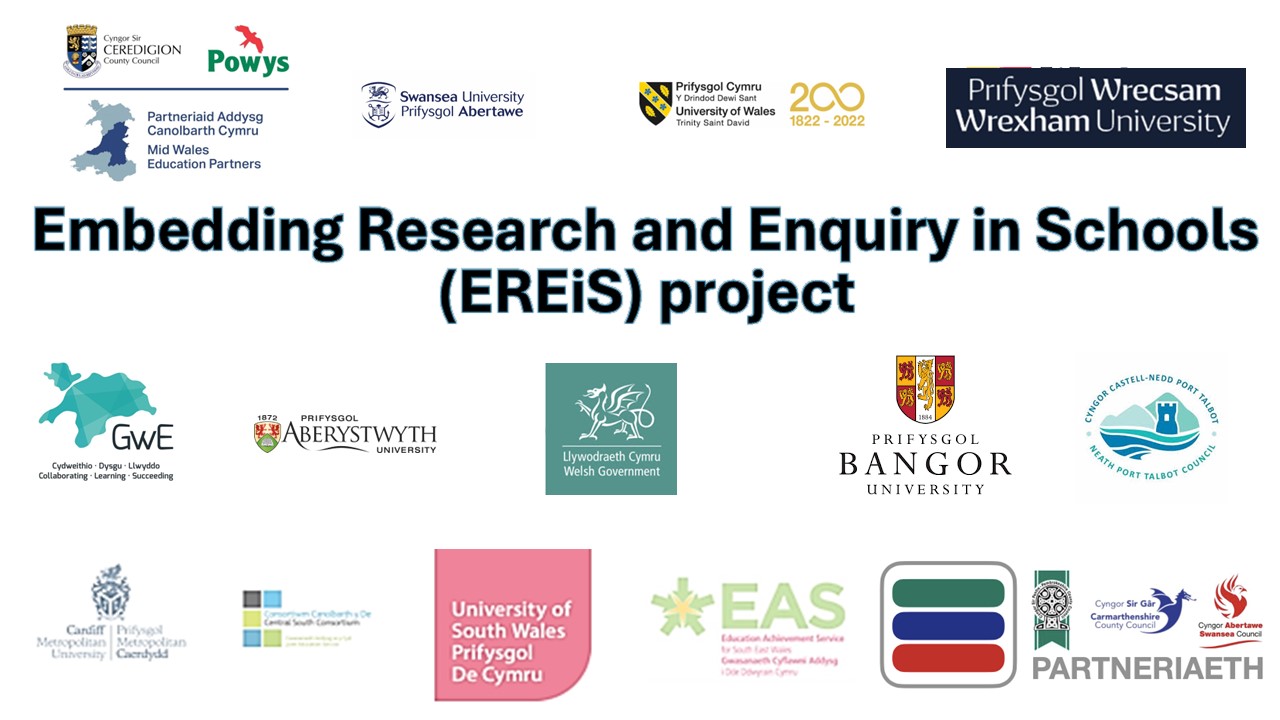
Embedding Research and Enquiry in Schools (EREiS)
Welsh Universities Learn from Schools to Win Prestigious Award
Written by Welsh Government, and reproduced with kind permission.
In September 2024, three Welsh university partnerships won the best presentation prize at an international Conference hosted by the British and World Educational Research Associations at the University of Manchester. They presented their findings from an innovative, Welsh Government funded project that they had undertaken to help schools develop a research and enquiry culture.
The Embedding Research and Enquiry in Schools (EREiS) project is designed to address a key objective of the National Strategy for Educational Research and Enquiry (NSERE) to support teachers to engage with research and carry out professional enquiry. The Welsh Government is committed to fostering research and enquiry in schools, so that learners can have the best experience possible.
Over the past three years, the Welsh Government has funded three university partnerships to work with groups of schools throughout Wales to:
- help schools use research and evidence to improve the experience of their learners
- support individual teachers to carry out their own enquiries, where they identify an issue that they wish to explore further
- provide opportunities where the schools can learn together, sharing challenges and good practice.
While the schools involved have learned a lot from working with each other and with the universities, the university researchers have gained considerable insights from working closely with different types of schools. This included an evaluation of system-wide features that help schools make effective use of research and enquiry. In September’s conference, the group’s work was acknowledged as the best symposium in the Educational Research and Educational Policy-Making category.
During the current academic year, the three university partnerships will bring together their learning to develop a resource to support schools to embed research and enquiry. This resource will initially be trialled with existing project schools and will then become available to all schools in Wales.
Content Accordions
-
2021-2024

The Embedding Research and Enquiry in Schools (EREiS) Welsh Government funded project commenced in 2021 and is currently in its third year phase. The project involves collaborative working between schools, regional consortia and higher education institutions to evaluate how to promote the use of research and enquiry in schools. The project consists of three regional groups from North, Mid and West and South Wales. Sue Horder, Lisa Formby and Tomos Gwydion ap Sion are members of the North Wales regional group.
In phase one, the three HEI groups identified five main themes related to the use of research and enquiry in schools; time and space, terms and expectations, networks, leadership and capacity, professional learning and presentation of evidence and theory.
In phase two the North Wales regional group which consists of Bangor University (BU), Wrexham University (WU) and the North Wales Regional School Improvement Service (GwE), continued to work in partnership and focused on discussions with school leaders to explore these five themes identified, but within the context of the Quality Use of Research Evidence (QURE) framework (Rickinson et al., 2023).
In phase three, the North Wales regional group concentrated on further evaluating the findings from the first two phases, considering the broader research landscape on effectively mobilising evidence and enquiry in school settings. A more in-depth analysis was conducted on the system level aspects of research use in schools through interviews with professionals across three tiers of the education system. The group also delivered information sessions to a selection of schools on evidence reviews, logic models and using education economics approaches to improve school provision and improvement planning. Recommendations from the project were provided using the six system enablers QURE model conceptual framework (Rickinson et al., 2023) as a structure.



